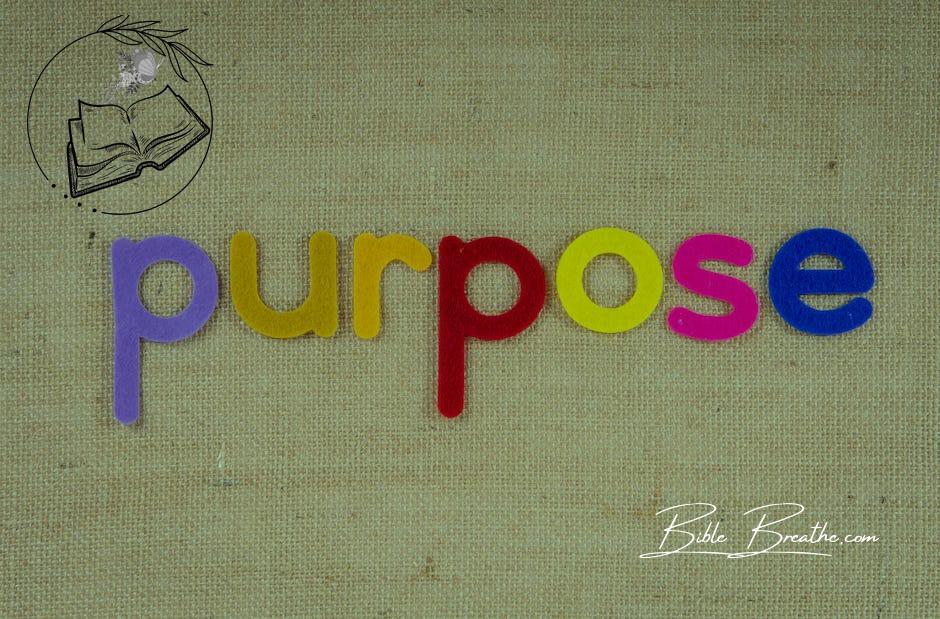Why did God hate Esau?
Let’s dive into this biblical puzzler, fam!
Picture this: Jacob and Esau, twins from the get-go, born to Isaac and Rebekah.
Now, we all know families have their dramas, but this one’s next level.
So, there’s this line in the Bible that goes, “Jacob I loved, but Esau I hated.
Sounds harsh, right?
But hold up, it’s not about love and hate as we know it.
It’s about God’s master plan.
You see, it’s about predestination, birthright, and a heavenly covenant.
God’s sovereignty is the MVP here, directing their paths.
We’ll unpack this in the biblical context, exploring ancient traditions and different interpretations.
It’s like a divine puzzle, with prophecy, Old Testament vibes, and a whole lot of purpose in the mix.
So, fam, let’s break it down, uncover why God’s love played out differently for these brothers, and see how it impacts our journey of faith.
📜🔍🙌
Key Takeaways
- Understanding Biblical Language and Context: Understanding why God had a negative disposition toward Esau requires careful consideration of the biblical language and historical context. The term “hate” used in this context may not necessarily imply emotional hatred as we understand it today, but rather a preference or choice regarding His plan.
- Complexities of God’s Decisions: God’s decisions and actions are often complex and tied to His divine plan. In the case of Esau, God’s choice may have been related to the fulfillment of His broader purposes rather than a personal animosity.
- Human Free Will and Consequences: Esau’s actions and choices also played a significant role in the outcome. He sold his birthright, showing a lack of regard for its spiritual significance. This had consequences on his destiny, which God foresaw.
- Lasting Impact of Choices: Esau’s story serves as a reminder of the lasting impact of individual choices. While God may have had a specific plan, human decisions and actions can influence one’s path in life. Esau’s choices led to the loss of his birthright, highlighting the importance of spiritual discernment and valuing God’s blessings.
In summary, the question of why God had a negative disposition toward Esau involves understanding biblical language and context, recognizing the complexities of God’s decisions, considering human free will, and acknowledging the lasting impact of individual choices on destiny.
It emphasizes the importance of spiritual discernment and valuing God’s blessings in our lives.
Unveiling the Enigma: Why Was Esau Out of Favor with God
Photo modified by BibleBreathe.com. Original photo by Pixabay on Pexels
To get to the bottom of why it seemed like God wasn’t exactly cheering for Esau, let’s step into the sandals of ancient times and grasp the weighty significance of what’s known as the birthright—a pivotal element in the saga of Biblical characters.
The Birthright: A Priceless Possession
Back in ancient times, a birthright was like having a golden ticket to a world of blessings and privileges.
It was a symbol of inheritance, a divine covenant loaded with significance.
Picture it like a sprawling ancestral estate, handed down through generations, overflowing with promise and prosperity.
In this instance, it was a heavenly pledge, a celestial deal deeply woven into the fabric of human destiny.
Esau’s Dilemma: Trading the Birthright
In the epic tale of fate, Esau, a key player in the Biblical drama, faced a monumental choice.
He found himself at a crucial crossroads, birthright in one hand and instant satisfaction in the other.
Esau’s call to trade his birthright for a bowl of lentil stew, driven by immediate hunger and fatigue, had repercussions that echoed through time.
Think about it in today’s terms—it’s like swapping a lifetime of potential success and abundance for a brief moment of comfort.
It boiled down to choosing between short-term gratification and long-term blessings.
Esau’s impulsive choice shed light on the intricate nature of human desires, whims, and the necessity of considering the lasting impact of our actions.
“For Esau, when he should have inherited the blessing, he found no place of repentance, though he sought it carefully with tears.” – Hebrews 12:17 (KJV)
Esau’s tale weaves in themes of predestination, the sovereignty of God, and the delicate dance between our choices and divine purpose.
It’s a profound narrative that beckons us to ponder the effects of our decisions and the divine blueprints that shape our lives.
Unveiling the Mystery: Why Did God “Hate” Esau?
Photo modified by BibleBreathe.com. Original photo by MART PRODUCTION on Pexels
Ever wondered about the twist in the tale involving God and Esau?
Let’s unravel this intriguing narrative woven through the ancient scriptures.
The Big Picture: Predestination and God’s Master Plan
Imagine life like a well-scripted play, where every character’s destiny is already penned down.
Esau, a key character in this divine drama, had his part written from the very start.
It’s not that God despised him, but rather he had a unique role to play.
Esau’s story is a blend of choices, consequences, and divine orchestration, showcasing how our lives are shaped by both our actions and a grand design.
Decoding “Love” and “Hate” in Ancient Context
The terms “love” and “hate” in the Old Testament aren’t as straightforward as they seem today.
In Esau’s case, “hate” should be seen as God’s selection of Jacob for a specific purpose, not a personal dislike.
“Jacob have I loved, but Esau have I hated.” – Romans 9:13 (KJV)
This quote from Malachi 1:2-3 signifies God’s choice of Jacob to fulfill a crucial role in the covenant’s unfolding.
It’s more about God’s divine selection than personal animosity towards Esau.
The birthright and blessings were part of a divine plan, and Esau had his own significant role in it.
Journeying through the Jacob and Esau Saga
The tale of Jacob and Esau isn’t just a blast from the past; it’s a lesson for our lives today.
It urges us to ponder the delicate balance between destiny and the choices we make, a struggle faced by humanity through the ages.
Ancient narratives like this hold a mirror to our lives, making us reflect on our own journeys within the grand scheme of things.
The story of Jacob and Esau is a testament to the layers of meaning and purpose woven into the fabric of our existence.
In this ancient tale, we don’t just find a glimpse into history, but also a reflection of the timeless questions about fate, choice, and the divine.
As we unravel these questions, we gain insights into the deeper mysteries of our existence and our role in God’s intricate design.
Unraveling Divine Displeasure: Delving into God’s View of Esau
Photo modified by BibleBreathe.com. Original photo by inna mykytas on Pexels
To really get why God seemed to have a bit of a frown towards Esau, we need to zoom in on Esau’s moves and the waves they made across generations.
Esau’s Nonchalance about the Birthright
Esau, in a moment that might seem small but held monumental consequences, shrugged off the sanctity and weight of his birthright.
It wasn’t just a quick trade for a meal; it was like tossing aside a divine promise for a fleeting delight.
Imagine someone treating a priceless family heirloom like it’s a trinket in exchange for a passing pleasure, totally oblivious to the future it could bring.
Esau’s actions spoke of a lack of respect for the spiritual legacy woven into his birthright, leaving a lasting mark on his life’s journey.
The Fallout: How Choices Echo Through Time
The aftermath of Esau’s choices didn’t stop at his dinner table; it echoed through the corridors of time, shaping the stories of his offspring.
The decisions we make today often reverberate in the lives of our kids and their kids.
Esau’s story stands as a warning sign, urging us to think about the impacts of our actions not just for ourselves but for the generations that follow.
In a broader scope, it nudges us to ponder how our disregard for spiritual heritage and impulsive choices can steer the course of our family, community, or even society.
It’s a lesson on how our actions are interconnected and can sway the collective destiny.
“For I loved Jacob, and I hated Esau…” – Malachi 1:2-3 (KJV)
Esau’s tale invites us to reflect on predestination, God’s sovereignty, and the intricate choreography of our choices within God’s unfolding plan.
It’s a call to be thoughtful about what we do, recognizing the far-reaching effects, and treasuring the sacred promises and blessings that come our way.
Unraveling God’s Divine Purpose in the Jacob and Esau Story
Photo modified by BibleBreathe.com. Original photo by Magda Ehlers on Pexels
Ever wondered about God’s game plan in the epic tale of Jacob and Esau?
Let’s dig into this divine narrative that’s like a thread woven into the grand tapestry of the Bible.
The Master’s Blueprint: God’s Big Picture for All of Us
Picture God as the ultimate artist, painting a grand mural of purpose for the whole world.
From the get-go, God’s vision was to shower grace and blessings on all of us.
Yet, in this grand masterpiece, specific characters were handpicked for special roles, like actors in a divine drama.
God’s love is like an expansive sky, embracing all of us, timeless and borderless.
It’s like an architect planning a city, each building unique, but together forming a beautiful and functional whole.
Jacob and Esau: Playing Their Part in God’s Big Story
Jacob and Esau were no supporting characters; they were leads in God’s grand script.
Jacob, the chosen carrier of the covenant, was like a pipeline for God’s blessings to flow down to generations.
Esau, on the other hand, embodies the intricate dance of free will and choices we all face.
His decisions, woven into God’s plan, showed the power of our own actions and the ripple of consequences.
“For the children being not yet born, neither having done any good or evil, that the purpose of God according to election might stand, not of works, but of him that calleth.” – Romans 9:11 (KJV)
God’s plan covers all of us, yet within this intricate design, we see the dynamic play of our choices shaping the course of history.
The story of Jacob and Esau reminds us that God’s purpose unfurls through a tapestry of our unique tales, each adding to the grand design.
In delving into the destinies of Jacob and Esau, we catch a glimpse of the beautiful blend of divine sovereignty and our own agency.
God’s love and purpose encompass us all, embracing both our individual stories and the masterpiece they together create.
The saga of Jacob and Esau is a testament to the deep wisdom and grace woven into God’s intricate design.
Frequently Asked Questions (FAQs) About Why Did God Hate Esau
Why did God choose Jacob over Esau before birth?
God’s choice of Jacob over Esau was part of God’s divine plan.
It was not based on their merits but on God’s sovereignty and foreknowledge.
This choice had implications for the covenant and the fulfillment of God’s promises.
How does the concept of “hate” in this context align with God’s nature of love?
In certain biblical passages, the term ‘hate’ is used to express preference or priority rather than a literal sense of hatred.
God’s nature is fundamentally one of love and compassion, but these expressions convey the idea of prioritizing one thing over another, not a contradiction of His love.
What lessons can modern readers derive from this story?
Modern readers can learn about the importance of reverence in worship, ethical behavior, and authenticity in faith.
Jesus’ actions emphasize standing against exploitation and corruption.
It encourages believers to exhibit courage in addressing societal and spiritual issues, promoting honesty and uprightness while honoring the sanctity of places of worship.
{
“@context”: “https://schema.org”,
“@type”: “FAQPage”,
“mainEntity”: [
{
“@type”: “Question”,
“name”: “Why did God choose Jacob over Esau before birth?”,
“acceptedAnswer”: {
“@type”: “Answer”,
“text”: “God’s choice of Jacob over Esau was part of God’s divine plan. It was not based on their merits but on God’s sovereignty and foreknowledge. This choice had implications for the covenant and the fulfillment of God’s promises.”
}
},
{
“@type”: “Question”,
“name”: “How does the concept of “hate” in this context align with God’s nature of love?”,
“acceptedAnswer”: {
“@type”: “Answer”,
“text”: “In certain biblical passages, the term ‘hate’ is used to express preference or priority rather than a literal sense of hatred. God’s nature is fundamentally one of love and compassion, but these expressions convey the idea of prioritizing one thing over another, not a contradiction of His love.”
}
},
{
“@type”: “Question”,
“name”: “What lessons can modern readers derive from this story?”,
“acceptedAnswer”: {
“@type”: “Answer”,
“text”: “Modern readers can learn about the importance of reverence in worship, ethical behavior, and authenticity in faith. Jesus’ actions emphasize standing against exploitation and corruption. It encourages believers to exhibit courage in addressing societal and spiritual issues, promoting honesty and uprightness while honoring the sanctity of places of worship.”
}
}
]
}





